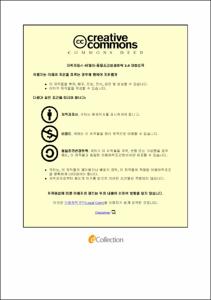고급한식당의 서비스품질과 외식동기가 고객만족 및 재방문 의도에 미치는 영향
= The Effects of High Class Korean Restaurants’ Service Quality and Customers’ Motive for Dining-out on Customers’ Satisfaction and Intention to Revisit
- Appears in Collections:
- 호텔관광외식경영학과 > 1. Thesis
- Files in This Item:
-
-
Download
 000001215807.pdf
기타 데이터 / 934.05 kB / Adobe PDF
000001215807.pdf
기타 데이터 / 934.05 kB / Adobe PDF
-
Items in Repository are protected by copyright, with all rights reserved, unless otherwise indicated.